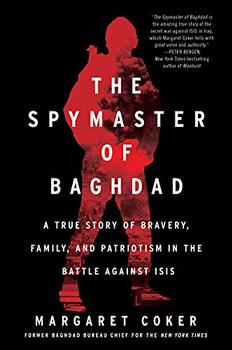Book Club Discussion Questions
In a book club? Subscribe to our Book Club Newsletter!
Please be aware that this discussion guide will contain spoilers!
- Harith's father was exceedingly strict with him, believing it was for his own good and future success. What did you think of Harith's upbringing, considering the family's socioeconomic situation, cultural factors, and the political context of the time?
- In the military and intelligence operations detailed in The Spymaster of Baghdad, the Iraqi units had advantages over their American counterparts. What were some of these advantages? To what extent do you believe cultural understanding could and should play a role in the success of military and intelligence operations?
- Under Saddam Hussein, the Sunni minority in Iraq held most of the power, but this changed after Saddam was deposed and the Shia majority gained power. How does this change affect the al-Sudanis and the al-Kubaisis? What did you notice or learn about the dynamics of oppression both before and after the fall of Saddam?
- Harith has a complicated relationship with his family—both with his parents and siblings, and with his wife and children. How do his relationships shift throughout the book? What role did the feelings of shame and duty play in these relationships? What connections do you see between Harith's decision to embark on his dangerous mission and his relationships with his family?
- Um Mustafa was Shiite and raised her children to respect all the Islamic traditions. However, Abrar still subscribed to the Islamic State's hatred for Shiites, writing online "The only good Shiite is a dead Shiite." Similarly, after the arrest of his daughter, Professor Kubaisi "finds comfort in the conspiracy theories that led to [Abrar's] radicalization all those years ago...if only a strong man could rise up and take over and put those upstart Shiites in their rightful place, he muses." What do you make of dynamic within the al-Kubaisi family? Why and how do you think people can espouse prejudices against groups their loved ones belong to?
- Conventional wisdom suggests that education is a barrier to radicalization, but Abrar, a highly educated scientist with a Shiite mother, would seem to disprove this. Can you describe the process of Abrar's radicalization? What do you think makes certain individuals susceptible to radicalization and propaganda?
- The Spymaster of Baghdad details many aspects of the American intervention in Iraq, such as Abu Ali's collaborations with American intelligence, the CIA's appointment of the ineffectual al-Shahwani as the nation's chief spy, and the Iraqi civilians injured or killed by Americans, fostering resentment against the invasion. What was your view of the American intervention in Iraq before you read The Spymaster of Baghdad? To what extent did that change or remain the same?
- At its height, the Islamic State was linked to or claimed responsibility for terror attacks around the globe, from the Pulse shooting in Orlando, Florida to the suicide bombing at Ariana Grande's concert in Manchester, UK. What do you remember of these (or other) attacks? Investigating a media outlet such as the New York Times or the Washington Post, compare the coverage of attacks in the US and Europe with that of attacks in Iraq.
- Patriotism plays a large role in several of the characters' decisions, from Abu Ali's return from a safe life in Sweden to Harith's sacrifice in going undercover. What does patriotism mean to you? What identities intersect or contradict it?
Unless otherwise stated, this discussion guide is reprinted with the permission of Dey Street Books.
Any page references refer to a USA edition of the book, usually the trade paperback version, and may vary in other editions.




